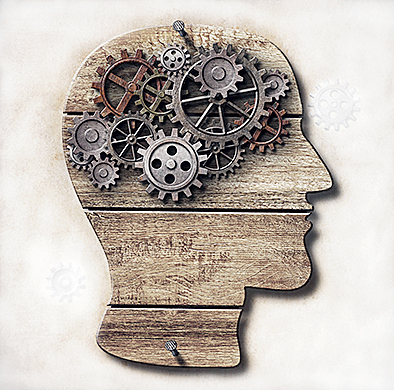Like most people, I am allergic to hospitals and unlike most, I am blessed with a high pain threshold. That made matters worse.
Some months ago, I was envious of all those who could sit still — literally. I had to think twice before plonking down on a chair as I was in perpetual pain and discomfort with a burst abscess. With time it had paved tracts in my body. No amount of antibiotics helped.
And then I had an epiphany. I realised I couldn’t continue living like this and opted for surgery instead.
On the appointed day, when I reported at the hospital counter, the man in charge asked, “Where is the patient?”
“I am the patient,” I replied, wondering why patients are invariably perceived through a stereotypical lens.
Fifteen minutes prior to being wheeled into the operation theatre, I was reading Nasreen Munni Kabir’s A Life in Music, a biography of Zakir Hussain. There was that bit where the tabla maestro was describing his sister Razia’s sudden death.
She had gone in for a simple cataract operation. She had had breakfast in the morning. But when she arrived at the hospital, she started to feel uneasy. Instead of sending her home, someone suggested they go ahead with general anaesthesia instead of local and complete the operation. Razia agreed but never came out of it. The same day Zakir’s father, Ustad Allah Rakha, joined Razia on the other side, unable to get over the shock of losing his beloved daughter.
As a rule, one should not eat anything for at least eight hours prior to general anaesthesia. It was perhaps not quite the book to pick up before being wheeled into an OT. Untoward thoughts swirled in my mind. At that moment, the nurse bustled into the room. “It’s time,” she said, business-like. “I’d like to walk down to the OT, please,” I requested in an attempt to deconstruct the stereotypical notion of a patient who has to be wheeled in.
I also tried to tell nurses, junior doctors, anyone who would care to listen that I had had breakfast four hours ago.
And then they injected me with a sedative. When I regained consciousness, waist downwards my body seemed to have disappeared. “You will be fine after a few hours,” the doctor assured, sensing my panic.
I drifted into sleep once again. This time when I woke up, I found myself in a large room with huge glass windows, a study table, an LED TV, a cupboard and a long sofa for visitors. The doctor had told me I would have to stay here for a few days.
Strangely enough, I was looking forward to it. I realised sometimes compulsions are preferable to choice. I’ve hardly ever had the luxury of indulging myself and doing nothing. I thought this would give me an opportunity to understand things I thought I understood in a new way.
I was right. My first thoughts strayed towards the common abuse, “A**hole”. I began to question its pejorative meaning.
The Cambridge Dictionary definition of the word is an unpleasant or stupid person. Now, in the situation I was in, I couldn’t disagree more. Why should this be a vulgarism, I thought to myself. On the contrary, I felt anyone who was bestowed this epithet should take it as a compliment. It could well mean a sensitive and delicate person.
Next, as a “patient”, I began looking inside out. Some night nurses were genuinely empathic, up on their feet tending to those lying helplessly with channels pierced into their veins, saline bottles dangling from hooks at the bedside. Then there was the housekeeping staff, ready to break into a chatter if you were game. And not to forget the dietician — akin to a steward — taking lunch and dinner orders for the day. “What would you like to have today” was the staple question with a dazzling smile, rather than a prescriptive “Here is what you would need to have today”.
By Day 3, I was walking around the room, gazing out of the window trying to grasp the vagaries that beset our lives. The adjacent building had the swastika embossed on its façade, four in total — one for each floor. I wondered if those had actually brought good fortune to its residents.
By Day 5, I was restless and looking forward to going home. Healing, I was told, would take time, but I didn’t mind. The swastika for me had spelt good fortune. At long last, I was sitting up and was mighty please about it. Of course, there was a different sporadic pain caused by the surgery to drain the abscess. But as they say, no pain, no gain.











